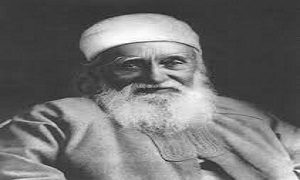In Ahdi tablet, Hussein Ali Nouri has appointed Abbas Effendi as his successor and Muhammad Ali Effendi did too after him. After Hussein Ali Nouri, Abbas Effendi, Abdul Baha became the Baha’is leader and stressed on this issue that he had no claim but obeying his father’s orders and preaching his teachings. According to the social and religious circumstances and in order to attract the satisfaction of the Ottoman authorities, he was participating at Islamic religious ceremonies such is Friday prayer and had recommended the Baha’is of that land not to speak about the new creed (Mohtadi, Vol. 2, P. 153; Mohit Tabatabaee, year 4, No. 3, p. 204). He was also praying for various government based on the political conditions.
Late World War I when the Ottoman government was fighting against Britain, some issues were happened which caused Jamal Pasha the general commander of the Ottoman troops was determined to execute Abdul Baha and to destroy the Baha’i centers in Acre and Haifa. Some historians believe that the origin of this decision was the hidden relationships between Abdul Baha and English troops which had been recently settled in Palestine. According to the Baha’i resources, Abdul Baha had stored a great deal of wheat in his lands and give it to the British troops.
One of the important events of Abdul Baha’s life was his trip to America and Europe. In 1328, invited by the Baha’is of Europe and America, he travelled to Egypt from Palestine and to Europe and America.
During his three-year trip, Abdul Baha introduced the 12 principles of Baha’ism (Momen, p. 185). Some of these teachings were hidden in Mirza Hussein Ali Nouri’s speech and some of them had been originated from the western though.
Abdul Baha died in 1340 A.H., 1300 S.H. and was buried in Haifa.






